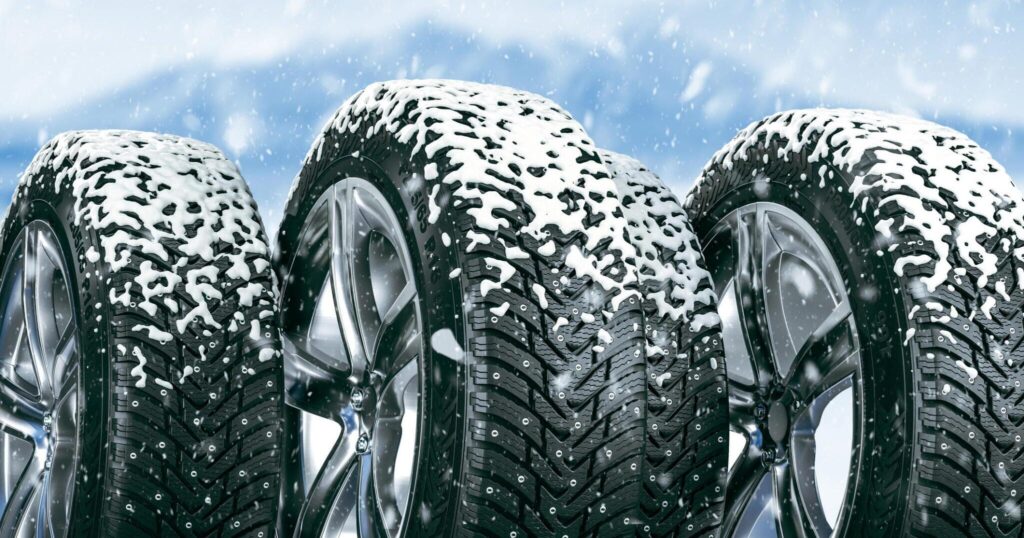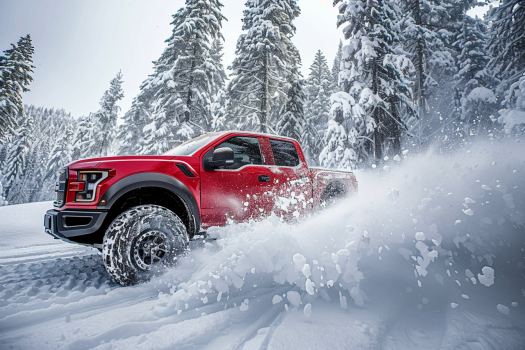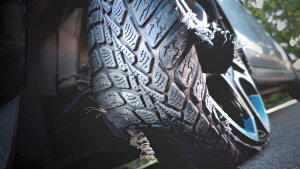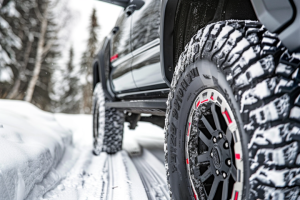Last Updated on August 28, 2024
Best Snow Tires 2024: Ultimate Guide for SUVs, Trucks, and Cars
Welcome to the 2024 edition of our comprehensive guide on the best snow tires for SUVs, trucks, and cars, brought to you by Tires Easy Truck. As the seasons change and winter approaches, the importance of equipping your vehicle with the right snow tires cannot be overstated. This introduction will delve into why snow tires are essential for winter driving and outline our rigorous evaluation process for selecting the top snow tires for 2024.
Welcome to the 2024 Edition.
This year, we’ve meticulously researched and tested an extensive range of snow tires to bring you the most reliable, safe, and high-performing options. Our 2024 edition is tailored to provide vehicle owners with the most up-to-date information, ensuring your choice of snow tires enhances your driving experience under winter conditions. Whether you own an SUV, truck, or car, our guide aims to equip you with the knowledge to make an informed decision.

Understanding the Importance of Snow Tires
Snow tires are designed to improve traction, handling, and braking performance in snowy, icy, and even slushy conditions. Unlike all-season tires, snow tires are made from a softer rubber compound that remains flexible in cold temperatures, allowing for better grip on the Road. The tread patterns and depth are also distinct, designed to channel snow, ice, and water away from the tire, reducing the risk of hydroplaning and improving safety.
The benefits of snow tires in enhancing winter driving safety cannot be overstated. With the right snow tires, drivers can expect:
- Enhanced Traction: Snow tires improve grip on icy and snowy surfaces, reducing the likelihood of slipping.
- Improved Braking Performance: The design of snow tires allows for better contact with the Road, shortening stopping distances in winter conditions.
- Increased Safety: Snow tires contribute to a safer driving experience by improving overall vehicle handling and stability.
How We Evaluate Snow Tires
Our evaluation process for selecting the best snow tires for the 2024 edition involves a comprehensive and systematic approach, ensuring that our recommendations meet the highest performance, safety, and durability standards. The criteria we consider include:
- Traction and Grip: We test how well each tire performs on various winter surfaces, including ice, snow, and slush.
- Durability and Wear: We assess the longevity of the tires under typical winter driving conditions to ensure they offer a good investment over time.
- Comfort and Noise Level: Tires should perform well and provide a comfortable and quiet ride. We evaluate the impact of tire design on driving comfort.
- Value for Money: We consider the overall cost of performance and durability, recommending tires that offer the best value to our customers.
- Customer Feedback: Real-world experiences play a crucial role in our evaluation. We consider customer reviews and testimonials to gauge satisfaction and performance in various conditions.
Best Snow Tires for SUVs
Snow tires are designed to tackle the challenges of cold, icy, and snowy roads, providing the traction and stability necessary for such demanding conditions. This introduction will guide you through the essential aspects of choosing the best snow tires for SUVs, focusing on the unique requirements of these larger, versatile vehicles. From understanding the key features that differentiate snow tires from all-season tires to highlighting the latest advancements in tire technology for 2024, we aim to equip you with the knowledge to make an informed decision. Whether navigating through blizzards icy streets or simply preparing for the unpredictable, selecting the right snow tires is critical in winterizing your SUV for optimal performance and safety.
Top Picks for 2024: Best Snow Tires for SUVs
As we navigate the myriad options available for winter driving, our selection of the top snow tires for SUVs in 2024 focuses on superior performance, safety, and durability. These picks are designed to meet the diverse needs of SUV drivers, offering enhanced traction, control, and reliability in severe winter conditions.
Features and Benefits
Our top snow tire selections have features engineered to provide the utmost safety and performance during winter. These include:
- Advanced Tread Designs are optimized to improve grip on snow and ice and facilitate the expulsion of slush and water, reducing the risk of hydroplaning.
- Flexible Rubber Compounds are formulated to remain supple in cold temperatures, ensuring better contact with the road surface for improved traction.
- Reinforced Sidewalls: These offer added durability and stability, which is especially important for SUVs with heavier weights.
- Bite Particles and Sipe Technology: The tread contains microscopic particles and sipes that dig into the ice, significantly enhancing grip.
Pros and Cons
While snow tires are indispensable for winter driving, it’s important to weigh their advantages and disadvantages:
| Pros | Cons |
| Enhanced Safety: Significant improvement in handling, braking, and acceleration on snow and ice. | Cost: The initial investment is higher than standard tires, and you may need a second set of wheels for easy seasonal changeover. |
| Better Traction: Specifically designed tread patterns and rubber compounds increase grip in cold weather conditions. | Storage: Requires space to store off-season tires. |
| Peace of Mind: Knowing your vehicle is equipped to handle adverse conditions reduces winter driving stress. | Wear in Warm Weather: Snow tires wear quickly in warmer temperatures, necessitating their removal after winter. |
Installation Tips
- Timing: Install your snow tires before winter sets in. Aim for when the temperature consistently approaches freezing.
- Professional Installation: While DIY installation is possible, professional fitting ensures optimal performance and safety.
- Rotation: Regular rotation every 5,000 miles can extend the life of your tires.
- Pressure Check: Cold weather can affect tire pressure. Regular checks ensure optimal performance and safety.
Buyer’s Guide: What to Look for in SUV Snow Tires
When selecting snow tires for your SUV, consider the following:
- Size and Fit: Ensure the tires are the correct size for your SUV. Incorrect sizing can affect vehicle handling and safety.
- Tread Pattern: Look for deep treads with biting edges and sipes for superior snow and ice traction.
- Rubber Compound: A soft rubber compound is essential for flexibility in cold temperatures.
- Load Capacity: Ensure the tires can support the weight of your SUV, especially if you frequently carry heavy loads or tow.
Our Recommended Tires for 2024: Snow Tires for Trucks
Choosing the right snow tires is crucial for winter safety and performance for truck owners. The 2024 edition of our recommendations at Tires Easy Truck is focused on providing truck drivers with the best options for tackling harsh winter conditions. These selections are based on extensive testing and analysis, ensuring that our recommendations meet the highest standards for durability, traction, load capacity, and ease of installation.
Durability and Traction Analysis
Our top picks for truck snow tires in 2024 excel in both durability and traction. These tires are designed to withstand the heavy-duty requirements of truck usage, including the wear and tear of carrying heavy loads and navigating challenging road conditions.
- Durability: The recommended tires feature robust construction with reinforced sidewalls to resist punctures and damages, extending the tire’s lifespan even under heavy use.
- Traction: With advanced tread designs and rubber compounds that remain flexible in cold temperatures, these tires offer superior grip on snow, ice, and slush, ensuring safe and stable driving.
Load Capacity and Handling
Trucks require tires that can manage the vehicle’s weight and the additional load. Our recommended snow tires for 2024 are selected for their high load capacity, ensuring they can handle the demands of heavy payloads without compromising performance.
- Load Capacity: Each tire is rated to support specific weight limits. Our selections include options that cater to various truck sizes and load requirements, ensuring safety and reliability.
- Handling: Improved handling is a crucial feature of our recommended tires, with designs that enhance steering responsiveness and stability, essential for maneuvering heavy vehicles in snow and ice.
Ease of Installation
Ease of installation is essential for truck owners, especially those who prefer to switch between seasonal tires.
- Installation Compatibility: Our recommendations include tires compatible with many truck models, ensuring a hassle-free installation process.
- Installation Tips: We provide detailed guidelines on proper tire installation, including checking for size accuracy, ensuring correct tire orientation, and using a professional service if unsure.
Buyer’s Guide: Selecting the Right Snow Tires for Your Truck
Choosing the right snow tires for your truck involves considering several key factors:
- Tire Size and Specifications: Ensure the tires match your truck’s size, load index, and speed rating specifications.
- Tread Pattern: Look for aggressive tread patterns specifically designed for snow and ice, offering deep grooves and biting edges for maximum traction.
- Rubber Composition: Opt for tires with a rubber compound that stays flexible in cold temperatures, improving grip and handling.
- Reviews and Ratings: Consider tire reviews and ratings from other truck owners, focusing on performance in winter conditions, durability, and load capacity.
Success Stories: Truck Owners Share Their Experiences
Our recommendations are backed by real-world success stories from truck owners who have experienced the benefits of our top snow tire picks:
One truck owner reported significantly improved traction and stability while hauling heavy equipment through mountainous terrain in snowy conditions, attributing the success to the superior design of the recommended snow tires.
Another success story comes from a delivery truck operator who experienced no downtime due to weather after switching to our recommended tires, highlighting the tires’ excellent performance and reliability in various winter scenarios.
Best Snow Tires for Cars
When winter’s chill sets in, and roads become treacherous with ice and snow, the importance of equipping your car with the best snow tires cannot be overstated. Selecting the right snow tires enhances your vehicle’s handling, safety, and performance under harsh winter conditions. With many available options, finding the best snow tires for cars involves considering various factors such as traction, durability, and tire technology. This guide provides comprehensive insights into the latest and most effective snow tires to keep you safe and secure on winter roads. Whether navigating through light flurries or tackling deep snowdrifts, the correct set of snow tires can make all the difference in ensuring a smooth and reliable driving experience during the colder months.
2024’s Leading Choices for Snow Tires: Enhancing Your Winter Drive
Selecting the right snow tires is paramount for the best winter driving experience. For 2024, our focus at Tires Easy Truck has been on presenting car owners with leading choices that stand out for their safety features, winter performance, fuel efficiency, and overall value. This segment of our comprehensive guide dives into what makes these tires the go-to option for confidently navigating snowy, icy roads.
Safety Features and Winter Performance
Safety remains the top priority when driving in winter conditions. The leading snow tires for 2024 incorporate advanced safety features designed to protect you and your passengers. These include:
- Enhanced Traction: Utilizing innovative tread designs and rubber compounds that remain flexible in cold temperatures to ensure superior grip on ice and snow.
- Improved Braking: Snow tires for 2024 feature technologies that reduce stopping distances in winter conditions, significantly enhancing safety.
- Stability in Harsh Conditions: With reinforced sidewalls and specialized tread patterns, these tires maintain stability, even in windy winter weather, preventing slippage and skidding.
Fuel Efficiency and Noise Levels
Modern snow tires are about safety and performance and address the need for fuel efficiency and a quiet ride. The top picks for 2024 offer:
- Low Rolling Resistance: The tire is engineered to minimize energy loss as it rolls, thus improving fuel efficiency and reducing carbon emissions.
- Noise Reduction Features: Tread patterns and materials are designed to lower road noise, making for a quieter, more comfortable driving experience.
Pricing and Value
While winter tires are an investment in safety, getting the best value for your money is also crucial. The leading choices for 2024 represent a range of price points, but all share common attributes of durability and long-term performance, ensuring:
- Cost-Effectiveness: Durable materials and construction mean fewer replacements over the years despite the upfront cost.
- Value for Money: Even the premium options are justified by their exceptional safety features, performance in winter conditions, and potential for fuel savings.
Buyer’s Guide: Identifying the Ideal Snow Tires for Cars
When shopping for the ideal snow tires for your car, consider the following criteria to guide your purchase:
- Tire Size and Type: Ensure the tires match your car’s specifications. Incorrect sizing can adversely affect vehicle handling and safety.
- Performance Requirements: Consider your typical winter driving conditions (e.g., icy roads and heavy snow) and select the best tires.
- Budget: Determine your budget in advance, but weigh the cost against the safety features and longevity of the tires.
- Warranty and Support: For added peace of mind, look for tires backed by a warranty and manufacturers who offer customer support.
Testimonials: Car Owners’ Winter Journeys
Real-world experiences from car owners who’ve navigated winter roads with our recommended snow tires provide invaluable insights:
One testimonial comes from a family who faced a sudden snowstorm during a mountain retreat. Their car, equipped with one of our top 2024 snow tire recommendations, was handled impeccably, ensuring their safe return home.
Another story highlights a daily commuter who experienced a noticeable difference in fuel efficiency and noise levels with their new snow tires, praising the comfortable and secure winter driving experience.
Tire Maintenance and Safety: Ensuring the Longevity and Performance of Your Snow Tires
Proper tire maintenance is crucial for maximizing your snow tires’ safety, performance, and lifespan. As winter conditions can be particularly harsh on vehicle components, especially tires, adhering to maintenance best practices ensures your vehicle remains safe and reliable throughout the season. This segment of our comprehensive guide, brought to you by Tires Easy Truck, delves into the essential aspects of snow tire maintenance, safety tips for winter driving, and guidelines on when to replace your snow tires.
Maintaining Your Snow Tires for Longevity
Regular maintenance ensures that your snow tires last as long as possible. Here are essential maintenance tips:
- Regular Inspections: Check your snow tires frequently for signs of wear and tear, including cracks, bulges, or embedded objects that could lead to punctures.
- Air Pressure: Cold temperatures can significantly affect tire pressure. It’s essential to check the tire pressure regularly, ideally once a month and before any long trips. Maintaining the correct air pressure ensures optimal performance and prevents premature wear.
- Rotation: Tire rotation is critical for even wear and extending tires’ life. Most manufacturers recommend rotating tires every 5,000 to 8,000 miles. This is particularly important for snow tires, as uneven wear can diminish their effectiveness in winter.
- Cleaning: Salt and de-icing chemicals used on roads during winter can degrade rubber over time. Regularly cleaning your tires and wheels can help prevent corrosion and prolong the life of your snow tires.
- Storage: Snow tires should be stored in a cool, dry place away from direct sunlight and ozone when not in use. Proper storage prevents the rubber from degrading, ensuring the tires remain in good condition for the next winter season.
Safety Tips for Winter Driving
Driving in winter conditions requires extra caution and preparation. Here are some safety tips to keep in mind:
- Reduce Speed: Slippery conditions mean your tires will have less grip on the Road. Reducing speed can prevent skids and give you more time to react to hazards.
- Increase Following Distance: Stopping on icy and snowy roads takes longer. Increasing the distance between you and the vehicle ahead gives you more room to stop safely.
- Avoid Sudden Movements: Sudden accelerations, brakes, or turns can cause your vehicle to lose traction and skid. Gentle maneuvers are vital to maintaining control.
- Use Lights: Keep your headlights on during the daytime to increase your vehicle’s visibility to other drivers.
- Be Prepared: Carry winter driving essentials, including a snow brush, ice scraper, jumper cables, and a safety kit with blankets and flashlights.
When to Replace Your Snow Tires
Knowing when to replace your snow tires is critical for maintaining safety. Here are indicators that it’s time for new tires:
- Tread Depth: The minimum tread depth for winter tires is 4/32 inches. You can use a tread depth gauge or the penny test (insert a penny into the tread with Lincoln’s head down; if you can see the top of Lincoln’s head, it’s time to replace the tire).
- Age: Even if not frequently used, snow tires age, and their rubber compounds deteriorate. Most manufacturers recommend replacing tires every 6 to 10 years, depending on their condition and how they’ve been stored.
- Performance Decline: If you notice decreased traction, longer stopping distances, or poor handling in winter conditions, it may be time for new snow tires.
Installation and Care: Maximizing the Performance and Lifespan of Your Snow Tires
Proper installation and diligent care of your snow tires are crucial to ensure they perform optimally throughout winter. This article, part of our comprehensive guide at Tires Easy Truck, is designed to thoroughly understand DIY installation techniques, the benefits of professional installation services, and best practices for caring for your snow tires.
DIY Installation Guide
Installing snow tires yourself can be a rewarding experience, saving you time and money. However, it requires the right tools, knowledge, and safety precautions. Here’s a step-by-step guide to help you through the process:
- Preparation: Ensure you have the correct size and type of snow tires for your vehicle. You’ll need a jack, a lug wrench, and a safe, flat surface to work on.
- Loosening Lug Nuts: Before lifting the vehicle, slightly loosen the lug nuts on the wheels you’re replacing.
- Lifting the Vehicle: Use the jack to lift your vehicle off the ground, following the manufacturer’s instructions to locate the proper jacking points.
- Removing the Wheel: Completely unscrew the loosened lug nuts and remove the wheel.
- Mounting the Snow Tire: Align the snow tire with the wheel studs and mount it onto the hub.
- Securing the Tire: Hand-tighten the lug nuts onto the studs and lower the vehicle back to the ground. Finally, use the lug wrench to tighten the nuts in a star pattern, ensuring an even fit.
- Repeat for All Tires: Follow the same process for each tire, ensuring all are securely installed.
- Safety Tip: Refer to your vehicle’s owner manual for specific instructions and safety guidelines related to tire changes.
Professional Installation Services
While DIY installation is feasible for many, professional installation offers several advantages:
- Expertise: Professionals have the experience and knowledge to handle installation efficiently, ensuring your tires are fitted correctly and safely.
- Equipment: Tire shops have specialized equipment, such as high-precision torque wrenches and balancing machines, to ensure tires are installed to the highest standards.
- Convenience: Utilizing professional services saves you time and effort, especially if you don’t have the tools or space for a DIY installation.
- Additional Services: Many shops offer tire balancing, rotation, and alignment checks as part of their installation services, further enhancing the performance and lifespan of your snow tires.
Caring for Your Snow Tires: Best Practices
Proper care extends the life of your snow tires, ensuring they remain effective for multiple winter seasons:
- Storage: When not in use, store your snow tires in a cool, dry place away from direct sunlight. If possible, hang them or store them in a tire rack to prevent deformation.
- Cleaning: Before storage, clean your tires with soap and water to remove road salts and debris that can cause deterioration.
- Inspection: Regularly inspect your snow tires for signs of wear, damage, or aging, addressing any issues promptly to maintain their performance and safety.
- Rotation: To ensure even wear, rotate your snow tires according to the manufacturer’s recommendations or every 5,000 miles.

Conclusion: Navigating Winter with Confidence – The Best Snow Tires for 2024
As we conclude our comprehensive guide on the best snow tires for SUVs, trucks, and cars in 2024, it’s essential to reflect on the key insights and recommendations highlighted to assist you in making an informed decision for your winter tire needs. Our exploration has taken us through a detailed analysis of the top picks for the year, emphasizing the importance of safety features, durability, traction, and the value these tires bring to your winter driving experience.
The selection process for the best snow tires is nuanced, with considerations varying significantly depending on the type of vehicle you drive and the specific winter conditions you face. We’ve emphasized tires that offer robust handling and stability for SUVs to support the vehicle’s size and performance characteristics. Trucks require tires with high load capacity and enhanced durability to withstand heavy-duty use. At the same time, cars benefit from tires that balance fuel efficiency, noise reduction, and reliable traction in snowy and icy conditions.
Final Thoughts and Recommendations
Choosing the right snow tires is a critical decision that impacts not only the performance of your vehicle in winter conditions but also your safety and that of others on the Road. Our guide aims to equip you with the knowledge to select tires that match your vehicle’s requirements and driving conditions. We recommend prioritizing tires that offer superior traction, enhanced safety features, and durability to ensure you can confidently navigate winter roads.
In addition to selecting the right tires, proper installation and maintenance are crucial to maximizing the performance and lifespan of your snow tires. Whether you opt for DIY installation or professional services, adhering to best practices in care and maintenance will ensure your tires remain in top condition throughout the winter season and beyond.
How to Purchase from Tires Easy truck
Tires Easy Truck makes the process seamless and straightforward when you’re ready to purchase. Our website offers an extensive selection of the best snow tires for 2024, catering to a wide range of vehicles and driving needs. To find the perfect SUV, truck, or car tires, navigate to our website and use our intuitive search tools to filter options based on your vehicle’s make, model, and desired tire features.
Once you’ve selected your tires, our secure checkout process ensures a hassle-free purchase, with various payment options to suit your preferences. Plus, with our professional installation partners located nationwide, you can opt to have your new tires delivered directly to a service center near you, ready for expert fitting.
Click here to find your perfect snow tires and prepare for winter driving.
FAQs
1. Do I need snow tires if I have all-season tires?
While all-season tires provide adequate performance in various conditions, snow tires are designed to offer superior traction, stability, and braking efficiency in snow, ice, and cold weather, making them essential for winter driving safety.
2. How are snow tires different from regular tires?
Snow tires feature a softer rubber compound that remains flexible in cold temperatures, deep tread patterns to enhance grip on snow and ice, and biting edges or sipes for improved traction. These characteristics distinguish them from regular tires, which may harden in cold weather and offer less grip.
3. Can I use snow tires all year round?
Using snow tires all year round is not recommended. Their softer rubber compound wears down faster on warm, dry pavement, reducing lifespan and effectiveness. It’s best to switch back to all-season or summer tires once winter is over.
4. How many snow tires do I need to install?
For balanced handling and stability, it’s essential to install snow tires on all four wheels of your vehicle, even if it’s front-wheel or rear-wheel drive. This ensures consistent traction and control in all winter driving conditions.
5. What are the top-rated snow tires available?
The Top Winter Tire is Michelin X-Ice Snow. Best for Ice Conditions: Nokian Hakkapeliitta R5. The optimal tire for Dry Winter Roads is Continental VikingContact 7. The Premier Choice for Snow is Pirelli Ice Zero FR.
6. Is it necessary to equip my SUV with winter tires?
Les Schwab advises installing winter tires on your AWD and 4×4 vehicles if you frequently encounter snow and ice conditions to ensure optimal safety and performance.
7. Which offers better winter performance: AWD/4×4 vehicles or vehicles with winter tires?
While AWD/4×4 vehicles provide enhanced acceleration in winter conditions, vehicles equipped with winter tires offer superior braking and handling, making them more reliable for everyday winter driving.
8. Do winter tires lead to increased fuel consumption?
The softer compound and deeper tread of winter tires can increase rolling resistance, leading to higher fuel consumption. This means more frequent gas station trips, potentially impacting the environment and your wallet.











 English
English Français
Français Español
Español